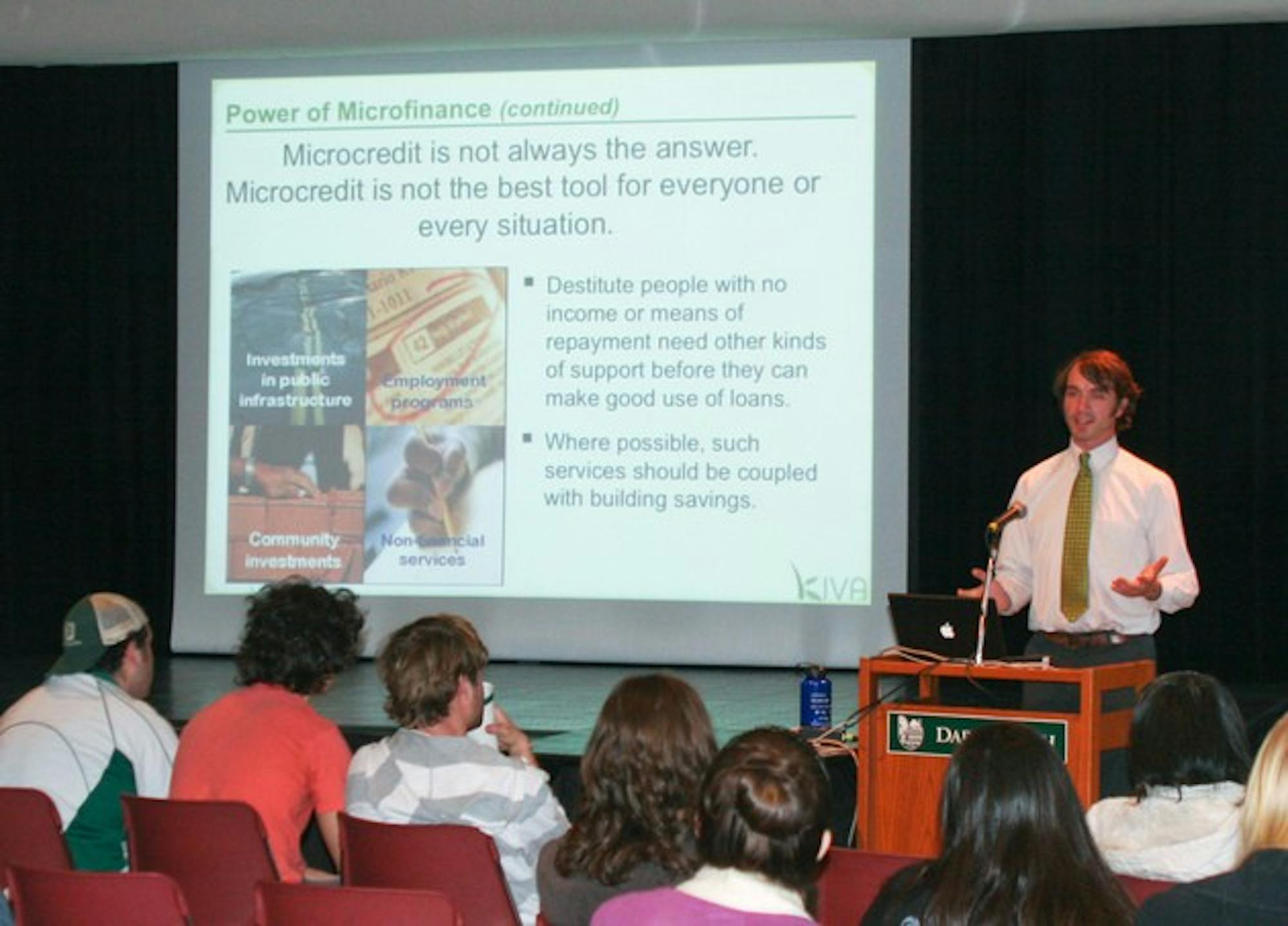Kiva is a microfinance organization that facilitates loans between investors and poor individuals in developing countries to support venturing business plans. Founded three years ago, Kiva currently has more than 300,000 lenders and functions as an online marketplace linking lenders to individuals that fail to qualify for normal bank loans, Bergeron said.
"First and foremost, the idea of our web site is to connect people," he said. "Banks tell Kiva that they have a certain number of borrowers who need loans and then Kiva acts as a face-to-face lending network."
In order to make the process more personal, Kiva's web site allows lenders to view pictures of potential loan recipients and read about their background and business plans, Bergeron said.
Through its Kiva Fellows Program, which Bergeron directs, Kiva offers students interested in microfinance an opportunity to get involved.
"I believe that getting involved in [the Kiva Fellows Program] is the best opportunity to get hands-on experience in the microfinance field that exists in the world today," he said.
Kiva Fellows work directly with loan recipients abroad, Bergeron added.
"There is a critical shortage of strong institutions and talented managers [in the microfinance field] so if you're someone who is interested in economics and international development, microfinance could definitely offer you a really valuable opportunity," he said.
Dana Dakin, the founder of Women's Trust, also spoke with students at the Kiva Bazaar. Women's Trust, a microfinance organization based in Pokuase, Ghana, aims to "support social and economic empowerment for women and girls living in poverty through microenterprise, education, and health care," according to its web site.
Women in Ghana have the desire and ability to succeed, but lack the necessary resources, Dakin said.
"That's where we come in," she said. "We're not trying to take over the town. We're just trying to make a positive impact."
Women are statistically more likely to devote their business profits to their children's education and their family's health, Dakin said, explaining the organization's decision to focus solely on women.
Jonathan Merten '09, president of the student organization SEEDS, said the Kiva Bazaar has three goals.
"First, we're trying to just get people talking about microfinance and raise awareness of the general industry," he said. "We're also trying to educate people about specific job opportunities within the field and solicit loans of any amount from Dartmouth students."
Learning about job opportunities is particularly relevant in light of the recent economic crisis, Merten added.
The microfinance field provides a link between the corporate world and charity organizations, Sam Tanyos '11, a member of SEEDS, said.
"Many economics majors face the dilemma of, 'Do I go work for a charity or non-profit organization and not make much money or do I sacrifice my soul to a corporation?' Microfinance says you can have such a thing as humanitarian capitalism," Taynos said. "It provides a happy medium."
A fundamental difference between microfinance and charity is that microfinance requires accountability from individuals receiving money since they are required to pay it back in order to receive another loan.
"Some people say that it's harsh to make poor people pay back loans but I personally feel that such a system views the poor with more dignity and respect," Tanyos said.
SEEDS, which was founded last Spring term, focuses on poverty alleviation programs that are both socially beneficial and financially viable in the long run.
"We promote awareness of those programs and also look for job opportunities for post-graduate and undergraduate students," Merten said.
The Subtleties a capella group performed during the Bazaar, which was SEEDS' first event. SEEDS will use the proceeds from its crafts sale to support its cumulative investment in microfinance abroad. The bazaar coincided with the Millennium Development Goals Week, which was sponsored by the Dartmouth Coalition for Global Health.




